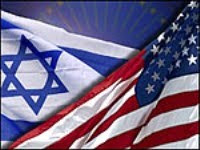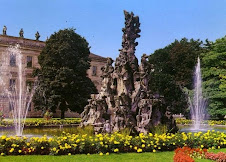The guy on the far left is a Secret Service Agent.
One of the most overlooked aspects of the whole Bill Clinton-Monica Lewinsky scandal was the role of the US Secret Service while Clinton was president. Just like the Arkansas State troopers who had been assigned to guard then-Arkansas Governor Clinton, the Secret Service was severely compromised by having to protect a president who was a serial philanderer.
Let me state at the outset that I have great respect for the Secret Service as an agency. During my DEA career, I had occasions to work with some of them. (Aside from their protection duties, they also have jurisdiction for enforcing counterfeit crimes.) When I was stationed in Milan at the US Consulate in the 1980s, the USSS also had an office in the consulate because there was a lot of traffic in US counterfeit currency in Italy. When I left Milan to return to the US in 1987, the head of the office presented me with a certificate of appreciation signed by their director. To this day, it hangs proudly on my wall, as does a (facsimile) signed portrait of Ronald Reagan, which was a gift from the agency.
Yet, regrettably, I think it is obvious that the agency was greatly compromised during the Clinton Administration by a president who could not control his womanizing impulses. I don't have any inside Clinton stories provided by USSS contacts, but common sense tells me that it is impossible for any woman to gain access to the President of the United States without getting past the Secret Service Protection Detail. Such was the case in the Kennedy Administration, and it was obviously no different in the Clinton Administration. Any fling that Clinton had while in office-or after, for that matter, has to be known to his guards.
During the Monica Lewinsky scandal, we learned that on one occasion after she had been reassigned to the Pentagon, Lewinsky came to the front gate of the White House attempting to gain entry to see Clinton. While at the guard booth, she became unruly and began shouting that she knew Clinton was being visited by some other woman-all this in public view.
We also know that the then-director of the USSS, Lewis Merletti, whom Clinton had appointed to the position, made a strong legal effort to preclude any of his agents and officers from having to testify before the Grand Jury as to what they knew about Clinton and Lewinsky, citing presidential-security privilege. That,of course, was a dubious claim as there is no legal precedent for this kind of legal privilege (such as doctor-patient, husband-wife or minister-penitent). If a Secret Service agent saw or heard something that was a crime or evidence of a crime by the president, he/she would be obligated to reveal that knowledge. In the case of Lewinsky, it is obvious that there were Secret Service personnel who had personal and direct knowledge of the relationship. Once Clinton was accused of perjury and obstruction of justice in trying to conceal that relationship, the knowledge of the agents would have been pertinent to the investigation. To take this to its extreme, what if the Secret Service had walked into a room and found a president committing a rape-or murder? Would their testimony have been precluded? Clearly not.
The Secret Service does have an agency code of conduct to the effect that agents will not publicly speak about their intimate knowledge or observations of the president and his family. That is laudable, but it has no basis in law. (Within the USSS and federal law enforcement circles, such stories do get around. The Secret Service stories about Lyndon Johnson were legendary.) In my view, Merletti's attempt to create a firewall between the Special Counsel, Kenneth Starr and his agents was reprehensible and a disservice to his agency.
This is a problem that will arise any time we have a president who is engaged in this kind of activity. It cannot possibly be carried off without the knowledge, indeed, the acquiescence of the Secret Service. Thus, the agency is automatically placed in a compromising position that it does not deserve to be placed in.
For those who continue to argue that Clinton (and Kennedy's) presidential philandering was of no consequence to the public, they might want to ponder if they really want the Secret Service placed in a position of being nothing more than a palace guard. It is the duty of the USSS to protect the president, not help cover up his indiscretions-or crimes. There is no doubt in my mind that the members of this agency feel the same way.
Should the Secret Service agents publicly reveal affairs and other indiscretions by a president? No. That is against their professional code of conduct. Once it crosses the line into illegal behavior, that is entirely different.














2 comments:
Geez, Gary, I'm almost hoping that Hillary wins the Presidency just so your blogs will be a little more topical! What's next, the Teapot Dome scandal and Warren G. Harding?
Just messing with you.
Don't stop me now, man! I'm on a roll.
Post a Comment